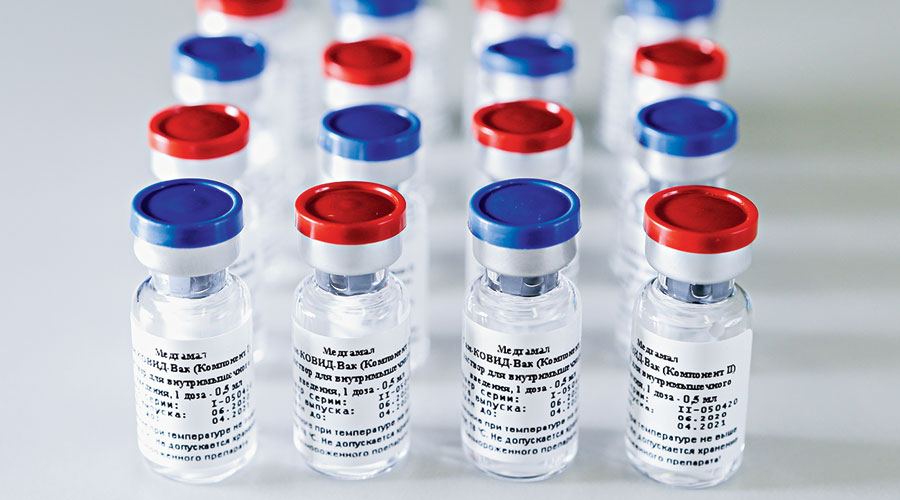India is in danger of being sucked into the “vaccination wars” that have broken out between the EU and the UK.
The Archbishop of Canterbury Justin Welby tweeted: “The European Union was originally inspired by Christian social teaching — at the heart of which is solidarity. Seeking to control the export of vaccines undercuts the EU’s basic ethics. They need to work together with others.”
In the circumstances, the argument is now being made — on the anniversary of Mahatma Gandhi’s assassination — that it will up to India to provide moral leadership and guide the world out of the pandemic.
The EU has told the UK that if AstraZeneca cannot supply the contracted number of doses from its plants in Europe, it is duty bound to meet the shortfall from its manufacturing facilities in Britain.
AstraZeneca is the UK-Swedish firm behind the Oxford vaccine. This is also being made by the Serum Institute at its factory in Pune.
The EU has said that if the British government will not allow AstraZeneca to divert supplies from Britain to meet the anticipated 60 per cent shortfall across the 27 member states of the EU, it will hit back by blocking the export of the Pfizer-BioNTech vaccine from its Belgium plant to the UK.
Reliable sources have told The Telegraph that the AstraZeneca vaccine made in western plants is “very similar” to the one made in Pune — and if there is a shortage in the EU, India, too, could come under pressure to make up some of the difference.
This assessment of India’s crucial global role is backed by a report in the Financial Times which said: “Downing Street fears that if vaccine nationalism takes hold, countries such as India — a manufacturing powerhouse for Covid-19 vaccines — would come under pressure to restrict exports, damaging the rest of the world.” Britain, which acted quickly to fund research and pre-order supplies, has managed to give vaccine doses to 12.5 per 100 people, compared with a dismal 2.5 in the EU.
A spokesman for the British Prime Minister Boris Johnson emphasised: “The UK has legally-binding agreements with vaccine suppliers and it would not expect the EU, as a friend and ally, to do anything to disrupt the fulfilment of these contracts.”
Reflecting vaccine nationalism, The Sun reported: “BLOC HEADS EU ‘cocked up big time’ over ‘Trumpian’ plan to block vaccine jabs”, while the Mail also adopted a similar line, “Desperate Brussels bullies are ridiculed after ‘Trumpian’ plan to stop Covid vaccine entering UK”.
The Croatian Prime Minister appeared to accuse the UK of “vaccine hijacking” by “offering more money” for doses, while the French President, Emmanuel Macron, claimed the vaccine was “quasi-ineffective” in older people.
The EU also released a redacted version of its contract with AstraZeneca to show the company has made a legal commitment to supply 400m doses: “5.1. Initial Europe doses. AstraZeneca shall use its Best Reasonable Efforts to manufacture the Initial Europe Doses within the EU for distribution, and to deliver to the Distribution Hubs, following EU marketing authorisation, as set forth more fully in Section 7.1…”
Another clause suggests the vaccine could be supplied from India, for example: “5.4. Manufacturing Sites. AstraZeneca shall use its best Reasonable Efforts to manufacture the Vaccine at manufacturing sites located within the EU (which, for the purpose of this Section 5.4 only shall include the UK) and may manufacture the Vaccine in non-EU facilities, if appropriate, to accelerate supply of the Vaccine in Europe…”
According to British lawyers, Clause 6.2, dealing with “Capacity limitations”, makes it clear that “the EU doesn’t have a leg to stand on” if the interests of the EU and the UK are in conflict.
The World Health Organisation is taking a global view that it is counterproductive for rich nations to squabble over vaccine supplies while poor countries have little or nothing. It has pointed that the pandemic does not respect boundaries and that “no one is safe until everyone is safe”.
WHO chief Dr Tedros Adhanom Ghebreyesus said “vaccine nationalism” could lead to a “protracted recovery”. He added that vaccine hoarding would “keep the pandemic burning and... slow global economic recovery” in addition to being a “catastrophic moral failure” that could further widen global inequality.











